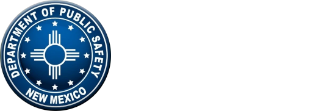Law Enforcement Academy launches free training, seeks to modernize curriculum
New Mexico agencies continue to build a community-oriented policing culture through LEA education
SANTA FE – The New Mexico Law Enforcement Academy (LEA) has launched a series of free training courses that will modernize New Mexico’s law enforcement training curriculum and reorient certified police officers on best practices when interacting with the public.
“Community Policing warrants dialogue and collaborative partnership between the police and the citizens they serve. Together, we can prevent and solve crimes, arrest offenders, and improve the quality of life in our neighborhoods, ” Department of Public Safety Secretary Jason R. Bowie.
The courses, Implicit Bias and Realistic De-Escalation are designed to help New Mexico police officers in their initial encounters with the public. The third, Internal Affairs and Professional Standards and Ethics, is geared toward thorough internal affairs inquiries.
Representatives from 15 New Mexico Law Enforcement agencies are enrolled in the initial course on implicit-bias awareness. The 2.5-day train-the-trainer course will prepare participating officers to implement in-house programs at their own agencies throughout the state and shape policies and practices statewide, said Department of Public Safety Deputy Secretary Benjamin A. Baker, the interim LEA director.
“These state-of-the-art training related to a subject matter rarely taught or understood, but absolutely critical to ensuring law enforcement is best able to protect life, property, and human rights,” said Baker.
“We know bias will never disappear completely. Ongoing education is critical,” he said. “Our goal is to establish a foundational understanding and awareness on how implicit bias impacts law enforcement and the citizens we interact with.”
Implicit bias is a preconception or prejudice that is present but not consciously held or recognized. It is an unconscious, unknowing differential treatment of another person based on several discriminatory factors, said Baker. This may include but is not limited to race, color, age, sex, gender, nationality, disability, and religion.
The LEA is committed to providing the best possible training that benefits every New Mexican. The de-escalation course will be offered November 17-18, where up to 80 officers can participate in the course focused on ways to help people in a state of crisis.
“We are interested in officers engaging the community with empathy and developing a heightened sense of self-awareness,” said Baker. “The implicit bias and de-escalation go hand-in-hand. These are tools to help officers from escalating a situation.”
The LEA is offering the advanced training and certification on Internal Affairs and Professional Standards and Ethics, as it requires a specialized skill base. A high percent of internal affairs investigations are associated with officer contacts with the general public, said Baker. The orientation / re-orientation of officers on de-escalation and implicit bias is designed to reduce the type of interactions / reactions that all too often result in internal affairs investigations. The information gleaned from these investigations allows police management to formulate policies addressing recuring problems. The internal affairs course if being offered October 11-13.
“The LEA is increasing the capacity, professionalism, and education breadth of the officers,” said Baker. “The increased professionalism resonates throughout their agency, and the culture it embodies, as well as the communities the officers serve in.”
The Department of Public Safety’s mission is to provide vital leadership, scientific training, technical, and operational support to the criminal justice community and the public.
###
